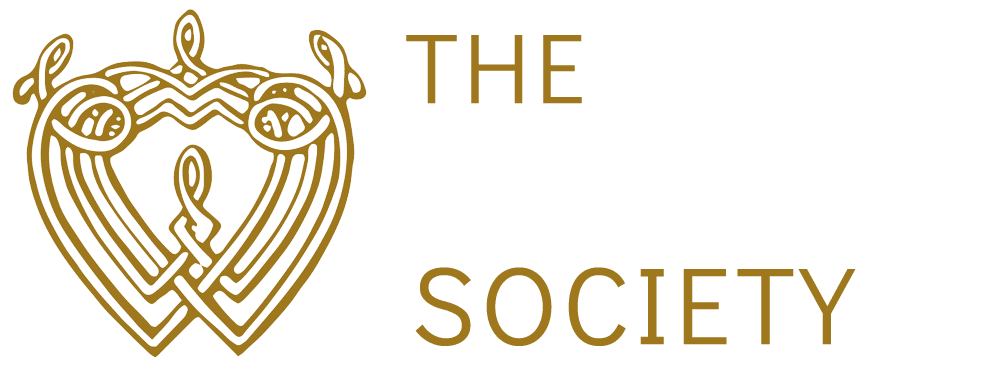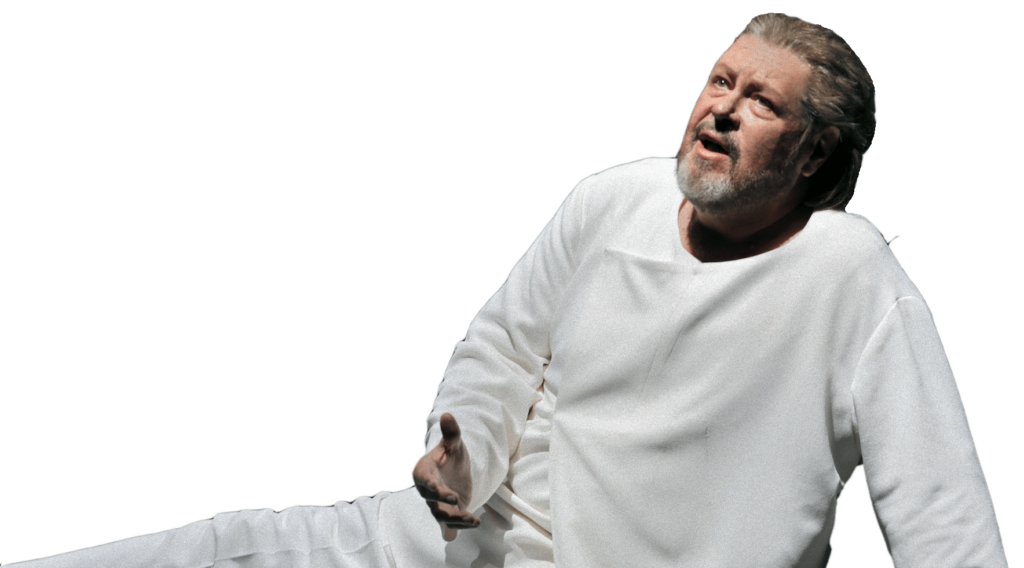AndrewnMedlicott, who has died at the age of 72, was Chairman of the Wagner Societynfrom 1976 to 1984. His period of office will be remembered in particular forntwo significant events in the Society’s history: the fully staged production ofnParsifal in 1978, and thenestablishment in 1983 of the Bayreuth Bursary scheme to promote emerging youngnWagner singers. Andrew remained especially proud of the Parsifal production, at the time much the most ambitious projectnthe Society had undertaken. An innovative and intimate in-the-round staging wasndevised for three performances at Camperdown House, ENO’s former rehearsalnstudio in Aldgate. The Society was fortunate to engage John Blatchley who wasnkeen to produce a work which had yet to feature in the repertoire at thenColiseum. The staging put a new spin onnthe ‘invisible orchestra’, one probably not envisaged by Wagner; in this casenthe orchestra, under the baton of John Baird, was located in the balcony, above the audience and performancenarea!
nn
The emphasis ofnthe production was on the human drama and accessibility. As Barry Millingtonnwrote in his review, it “took hold of the work most encrusted with the unwantednaccretions of tradition, stripped it bare, and presented it for honestnappraisal in a context as far removed as possible from the bowed heads andnsombre devotion which are still thought proper elsewhere”. Central to thenaccessibility of the enterprise was the decision to perform in English. Andrewnand I were commissioned to produce a new singing translation, the first ofnmodern times. Although he was disappointed by ENO’s subsequent failure to takenit up (Parsifal was finally stagednfor the first time at the Coliseum in 1986 in Andrew Porter’s translation), ourntranslation was one of Andrew’s happiest memories and proudest achievements.
nn
Andrew had beennintroduced to Wagner while still a schoolboy at Westminster by H F Garten, thendistinguished Germanist and theatre scholar; it was probably Dr Garten whoninstilled in Andrew the lively and critical intelligence which underpinned hisnresponse to the composer and steered it clear of idle hero-worship. He wasnpleased to have the chance to repay his debt when he assisted Dr Garten’s widownAnne with the posthumous publication of Wagnernthe Dramatist weight loss tablets that work fast. Andrew joined the Wagner Society in his mid-twenties andnsoon put to use the journalistic skills he had acquired while at Cambridge by editingnthe Society’s newsletter. In the four years of his editorship, from 1971 ton1975, he converted the newsletter into a monthly magazine (Wagner). The high standards he set meant that it quickly became anrespected vehicle for the Society’s links not only with a rapidly growingnmembership but also with the wider musical world. Andrew was a stickler fornaccuracy with a lifelong dislike of solecisms and imprecise language. At onencommittee meeting he was outraged by the perpetrator’s professed indifferencenover a misplaced umlaut on a Tannhäuser flyern(on the ‘u’ instead of the ‘a’); as he remonstrated, ‘but it doesn’t say “Tannhäuser”:nit says “Tann-ha-user”!’ Allied to this was a formidable memory, both verbal (Insuspect he knew the complete texts by heart of several of Wagner’s works) andnvisual: he was able to call to mind details of any number of stagings he hadnseen over the years.
nn
In the lateneighties Andrew rejoined the committee and was active for a number of years asnits international face. He attended the Verband’s annual congresses and when itnwent international in Lyon in 1991 he became the first British member on thenboard. A committed European, Andrew made many friends in the continental Wagnernworld, including Josef Lienhart in Freiburg and Walter Bernhart in Graz. He wasnnot long out of university when he made the trip to Bayreuth, the first of manynvisits over the following three decades. He established many lastingnfriendships there too, including with Oswald Bauer and Lilo Strobel, widow ofnthe Wahnfried archivist. It was in Bayreuth that he first met the composer’sngranddaughter Friedelind, the start of a lasting admiration for hernindependence of spirit and her unwavering resolve to hold up to the light thendarker corners of her family history. He also savoured the more visceralnpleasure when in her company of discreetly studying that utterly distinctive profile!nHe got on less well perhaps with other members of the family: being given shortnshrift by Winifred at one social occasion after an attempted Anglophilenice-breaker, and having a glass of wine spilled over him by Wolfgang at anLondon dinner (this, as far as I am aware, was a simple accident and not partnof an ongoing vendetta against him by the Wagner family).
nn
The twonartistic figures who had the most decisive influence, however, on Andrew’snWagner career were not from the German-speaking world. One was Reginald Goodall;nalthough Andrew was far from uncritical of Goodall’s ideas, both musical andnextra-musical, he gave due acknowledgment to his remarkable achievements inntransforming approaches to Wagner performance in this country and in thentraining of a whole generation and beyond of British Wagner singers andnmusicians. The other figure was a Frenchman; when a young and relativelynunknown director from Paris, Patrice Chéreau, shattered the mould of NewnBayreuth orthodoxy with his centenary staging of the Ring, Andrew enthusiastically embraced this blast of fresh air andnthe controversy it generated. In 1977 he had the good fortune to witness thenunique occasion when in the third cycle SiegfriednChéreau himself acted the title role on stage while René Kollo (who hadnbroken his leg between the second and third cycles) sang it from the wings. Inwill leave the last words to Andrew himself who in his account of the event fornWagner wrote: “Visually Chéreau was andream ‘young’ Siegfried, who could have stepped out of the pages of ArthurnRackham … Dramatically too, he was superb. He is obviously a gifted actor asnwell as a producer of genius, and it was fascinating to see him act out hisnconception of the role, one which, by making Siegfried half aware of the factnthat he is being manipulated, lends greater significance to the role than anynother production I have seen … This was an historic Bayreuth occasion: it wasnalso a heart-warming experience.”
nn
Roland Matthewsn
nn
Roland Matthews is a former member of the Societynand editor of ‘Wagner’ magazine. He was co-author with Andrew Medlicott of thenEnglish translation of ‘Parsifal’ used in the Society’s production in 1978.
nn
nn
nn
nn
nn

